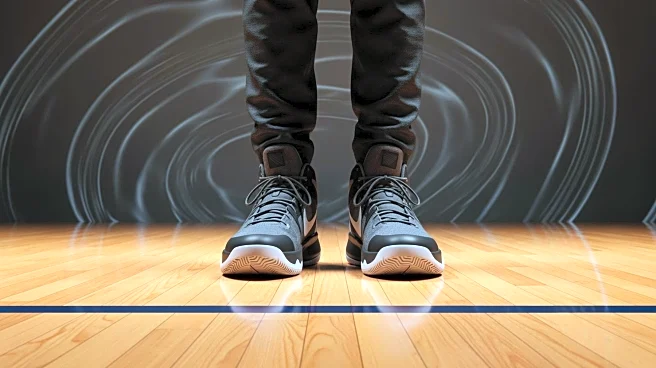What's Happening?
Recent speculation has emerged regarding the potential trade of Memphis Grizzlies star guard Ja Morant, following his suspension for conduct detrimental to the team. Despite rumors suggesting that teams
across the NBA are monitoring Morant's status, NBA insider Chris Mannix reports that the Grizzlies are not considering trading him. Mannix indicates that the team views Morant as a franchise cornerstone and plans to build around him, alongside Jaren Jackson Jr. The Grizzlies aim to leverage assets, including first-round draft picks acquired from Orlando, to strengthen their roster rather than initiate a rebuild.
Why It's Important?
The decision to retain Ja Morant as a key player reflects the Grizzlies' commitment to maintaining a competitive team structure. This approach could impact the team's performance and strategy in the NBA, as Morant's presence is seen as vital to their success. The Grizzlies' stance may influence other teams' trade strategies and market dynamics, as Morant's potential availability could have shifted player valuations and trade negotiations. By focusing on building around Morant, the Grizzlies signal their intent to remain competitive in the league, affecting their long-term prospects and fan engagement.
What's Next?
While the Grizzlies currently plan to keep Morant, the situation could evolve if circumstances change, such as further team struggles or a direct trade request from Morant. The team's performance and Morant's relationship with the organization will be crucial in determining future decisions. Stakeholders, including fans and other NBA teams, will closely watch the Grizzlies' actions and Morant's status, as any shift could have significant implications for the league's competitive landscape.
Beyond the Headlines
The Grizzlies' decision to retain Morant highlights broader themes in sports management, such as the balance between rebuilding and maintaining a competitive edge. It underscores the importance of player-team relationships and strategic asset management in professional sports. The situation also reflects the dynamic nature of NBA team strategies, where decisions can rapidly change based on performance and player sentiment.








